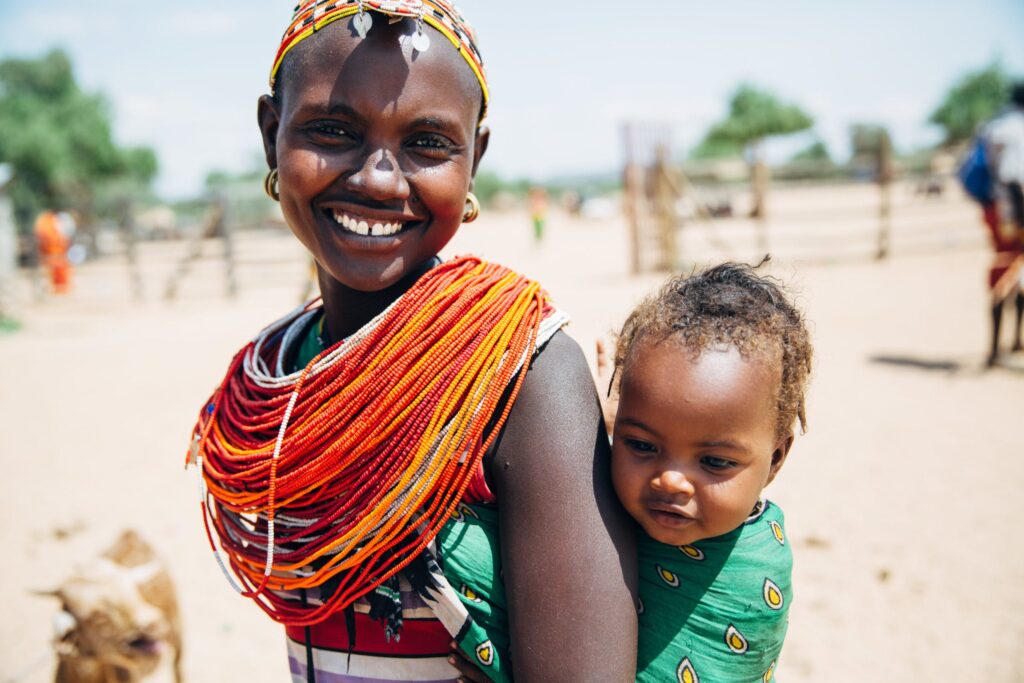This week is World Breastfeeding Week, a time to focus global attention and galvanize collective action to educate, promote, and support breastfeeding across all aspects of society. This year’s theme, Enabling Breastfeeding: Making a difference for working parents, seeks to highlight and address workplace barriers that make it difficult for women to meet their breastfeeding goals.
Breast milk provides babies the best start in life. It contains a perfect blend of essential nutrients and protective antibodies. It supports optimal physical and cognitive development and helps protect against illness and malnutrition.

Breastfed babies have a lower risk of diarrhea, respiratory infections, asthma, and leukemia. Nursing mothers benefit too. Breastfeeding is proven to reduce the risk of breast and ovarian cancers, Type 2 diabetes, osteoporosis, postpartum depression, and other diseases and conditions.
Throughout years of advocating for maternal and child health and nutrition programs, I have seen the many benefits of breastfeeding firsthand. But it wasn’t until I became a mother in 2021 that I personally understood the enormous gift, as well as the incredible sacrifice, that is breastfeeding.
Breastfeeding – that beautiful experience of sustaining and nourishing another life with your own – requires strength and commitment as well as knowledge and support.
Support at the Push of a Button
Crucially, I benefited from excellent pre- and post-natal care. I was fortunate enough to deliver my son in a Baby-Friendly Hospital that met certain clinical and management benchmarks proven to significantly improve breastfeeding rates. Through immediate skin-to-skin contact, early initiation of breastfeeding, and the assistance of trained lactation consultants, I was provided with foundational breastfeeding supports. At the press of a button, a certified lactation consultant would visit my recovery room to address concerns, troubleshoot common breastfeeding problems, and provide invaluable encouragement.
Reflecting on my motherhood journey, I can easily say that nursing has been an incredible joy. The countless hours spent breastfeeding my son have been loving, peaceful, and healthy – not just physically, but emotionally as well. There is something so beautiful and bonding about the singularly intimate act of breastfeeding.
But breastfeeding does not and cannot happen in a vacuum. Beyond the support of lactation consultants, I had the encouragement of my husband and other family members. I had access to nutritious food, quality vitamins, and clean water that helped me maintain a healthy supply of milk.
I benefited from a social environment that consisted of friends and fellow mothers who were happy to share information and personal successes and struggles. I had professional support and accommodations. And I had time. Time to sit down, time to rest, time to breastfeed. As any mother who has breastfed knows, it is an incredible time commitment.
Empowering Women to Meet Breastfeeding Goals
Ultimately, I was able to meet my breastfeeding goal due to a broader set of social, economic, and environmental factors that created an enabling atmosphere for my body to do precisely what God designed it to do.
But far too many new mothers, in too many places around the world, lack that same vital support. They are not empowered and enabled to meet their breastfeeding goals. Despite broad awareness of the enormous benefits of breastfeeding for both baby and mother, fewer than half of infants under six months of age were exclusively breastfed last year. And in many of the countries and contexts where Food for the Hungry (FH) works, breastfeeding can truly mean the difference between life and death for a vulnerable baby.

USAID notes that breastfeeding has the greatest impact on child mortality of any preventative intervention, estimating the lives of an additional 823,000 children and 20,000 women could be saved each year just through the adoption of optimal breastfeeding practices. Clearly, breastfeeding is an incredibly important tool in the fight against poverty, injustice, and marginalization.

That is what makes FH’s breastfeeding work through our Care Group model so incredibly important.
FH Care Groups leverage the power of existing social networks within communities to educate, equip, and mobilize women to become health educators, sharing their breastfeeding knowledge and experience with others. Care Groups serve as a mutually supportive environment that empowers women to meet their breastfeeding goals. In this way, our work truly reflects this year’s World Breastfeeding Week focus of reducing barriers and enabling breastfeeding.
My hope is that this week’s global celebration of breastfeeding will be a time to appreciate the strength and sacrifice of the breastfeeding mothers in our own lives while supporting all mothers and babies everywhere.
Kristen Callaway is FH’s Public Policy & Advocacy Advisor. She has a decade of experience working in public policy and advocacy to advance the fight against global poverty and injustice. Kristen and her husband are the proud parents of a 2-year-old son.
Continue Reading:
Cash Transfer Enables Livelihood for Ethiopian Mother of Six


